- is carrying on a business, and
- has an aggregated turnover of less than $2 million.
Aggregated turnover is your annual turnover plus the annual turnovers of any business entities that are your affiliates or are connected with you.
The exemption will apply to the following types of insurance:
- Commercial vehicle insurance – being motor vehicle insurance for a vehicle used primarily for business purposes
- Commercial aviation insurance – being aviation insurance for an aircraft used primarily for business purposes
- Occupational indemnity insurance – insurance covering liability arising out of the provision by a person of professional services or other services (other than medical indemnity cover within the meaning of the Medical Indemnity Act 2002 of the Commonwealth)
- Product and public liability insurance – insurance covering liability for personal injury of property damage occurring in connection with a business or arising out of the products or services of a business.
For a policy to be exempt, the insured must be a small business as at the date the policy is effected or renewed and the insurer must have a small business declaration. If an insurer does not have a small business declaration as at the date the policy is effected or renewed then the policy is liable to duty. Refer to the frequent questions below for instances where a declaration is received after the policy is effected or renewed.
For more information, see the frequent questions below.
Frequent questions
General
What is motor vehicle insurance?
Motor vehicle insurance is insurance covering any one or more of the following:
- the loss (including the loss by theft) of a motor vehicle,
- damage to a motor vehicle,
- loss of or damage to property by a motor vehicle.
being a motor vehicle within the meaning of the Motor Accidents Compensation Act 1999.
When is a motor vehicle considered to be used primarily for business purposes?
A motor vehicle is used primarily for business purposes if it is used more than 50% of the time for business purposes.
An insurer can rely on the certificate of registration where it shows the vehicle has a business use.
What is aviation insurance?
Aviation insurance is insurance covering any one or more of the following:
- the loss (including the loss by theft) of an aircraft,
- damage to aircraft,
- the death of or injury to a person by an aircraft or a thing falling from an aircraft,
- the loss of or damage to property by an aircraft or a thing falling from an aircraft.
When is an aircraft considered to be used primarily for business purposes?
An aircraft is used primarily for business purposes if it is used more than 50% of the time for business purposes.
What is medical indemnity cover?
Medical indemnity cover is defined in the Medical Indemnity Act 2002 of the Commonwealth to mean a contract of insurance which indemnifies a person who is named or referred to in the contract against claims arising from their practice of a medical profession. A medical profession includes any health care related vocation in which a person must be registered in order to practice.
Under the Health Practitioner Regulation National Law a person must be registered to practice any of the following professions:
- Aboriginal and Torres Strait Islander health practice;
- Chinese medicine;
- chiropractic;
- dental (including the profession of a dentist, dental therapist, dental hygienist, dental prosthetist and oral health therapist);
- medical;
- medical radiation practice;
- nursing and midwifery;
- occupational therapy;
- optometry;
- osteopathy;
- pharmacy;
- physiotherapy;
- podiatry;
- psychology.
Are there any exceptions to the small business exemptions?
The exemptions will not apply to the following types of insurance:
- Insurance of an association. An association would not be a small business entity within the meaning of section 152-10 (1AA) of the Income Tax Assessment Act 1997 of the Commonwealth as they are not a sole trader, partnership, company or trust.
- taken out by or on behalf of a non-profit organisation having as one of its objects a charitable, benevolent, philanthropic or patriotic purpose. These types of organisations have a separate exemption under s259 of the Duties Act.
- Standalone crime cover. As this type of policy is sold on a standalone basis it could not be considered to be occupational indemnity insurance.
- The Public Liability portion within home building insurances. An exemption can only apply where the person insured is a small business. If the policy is taken out by the homeowner and not by a small business then the exemption will not apply.
- Strata (public liability component). This type of policy will only be exempt where the person insured is a small business as defined (a sole trader, partnership, company or trust carrying on a business). A body corporate of a strata scheme (owners corporation) would not meet this definition.
- Construction Liability cover. Construction Liability is written in two parts:Section A covers physical damage to the construction project itself, not any resulting legal liability;Section B covers essentially the same risks as a public liability policy i.e. it covers the Insured’s legal liability to pay compensation for personal injury or property damage suffered by third parties arising out of the construction works or construction project.Section A of the policy will not be exempt. Section B will be exempt where the insured is a small business.
Business
How would an insurer know I am a small business so I am not charged duty on my policy?
An insurer will require the insured to provide a small business declaration. This is a declaration by the insured to the effect that the person is a small business at the time that the contract of insurance is effected or renewed.
A single small business declaration will cover all insurance effected with a particular insurer during the small business’s income year.
When is a business affiliated or connected with my business?
A business is affiliated with your business, if an individual or company, in relation to their business affairs, acts or could reasonably be expected to act:
- in accordance with your directions or wishes, or
- in concert with you
Trusts, partnerships and super funds can’t be your affiliates. However, a trust, partnership or super fund may have an affiliate who is an individual or company.
Your business is connected with another business if:
- either entity controls the other entity, or
- both entities are controlled by the same third entity
What if I have affiliates to my business or I am connected with more than one business?
You will need to aggregate the annual turnover of any business entities that are either your affiliates or are connected with you.
What if I took out the insurance before 1 January 2018, can I receive a refund?
No. The exemption only applies to insurance policies effected or renewed on or after 1 January 2018.
What if I am a small business and my insurance policy shows I am being charged duty after 1 January 2018?
A small business is not liable to duty for certain types of Insurance where the policy is effected or renewed on or after 1 January 2018. However, the policy may include multiple types of insurance which may not always be clear. Duty will continue to apply to other types of insurance and this may be why you will still see duty on your policy after 1 January 2018. Contact your insurer if you require further information.
Can I get a refund of duty if I am an insured business and my aggregate turnover reduces so that I fall within the small business definition during the policy period (e.g. mid-term)?
No. Eligibility is determined at the time the policy is effected or renewed.
What happens if I claim a small business exemption I am not entitled to?
A court may impose a penalty of up to $11,000 for an individual and $55,000 for a corporation.
In addition, the insured may be required by the insurer to pay to the insurer an amount equal to the duty, together with any interest or penalty tax payable. The insurer may recover this amount as a debt if the amount is not paid.
Insurers
Do these exemptions require additional reporting and disclosure by an insurer?
No. Insurers are still required to provide an annual return, but there are no additional reporting or disclosure requirements.
As with all claimed exemptions, an insurer is required to keep sufficient records to enable its insurance duties liability to be properly assessed. These records will include any small business declarations relied upon by the insurer, and they must be kept by the insurer in a readily accessible form for a minimum period of five years.
What if the policy covers multiple risks?
If the policy covers multiple types of insurance, then the premium will require apportionment between the different types in order to determine the duty payable.
Similarly, if the policy applies across multiple States or Territories then the premium will require apportionment in order to calculate any duty payable for each State or Territory.
What if the premium is being paid in instalments?
If a policy is effected or renewed before 1 January 2018 it will remain liable to duty. It does not matter if the premium is paid before or after 1 January 2018 or if the premium is paid in instalments.
What if I am an insurer who received a small business declaration from a small business after the policy was effected or renewed?
An insurer would be able to seek a reassessment for the period where the duty was paid and a refund of overpaid duty from Revenue NSW.
Alternatively, the Chief Commissioner is prepared to approve a special tax arrangement under section 37 of the Taxation Administration Act 1996 for any insurer who would like to be able to offset refunds on these policies against any subsequent return period. An insurer seeking such a special tax arrangement must apply to the Chief Commissioner in writing.
Can a small business declaration be completed by a broker as an agent of the insured?
No. The legislation provides that a small business exemption does not apply to a contract of insurance unless the insurer obtains a declaration by the insured person to the effect that they are a small business at the time the insurance is effected or renewed.
A broker would need to obtain such a declaration and, in the case of a broker acting for the insured person, provide the declaration to the insurer in order for the insurer to exempt the policy.
Source: NSW Revenue Government – Last updated: 6 December 2017

